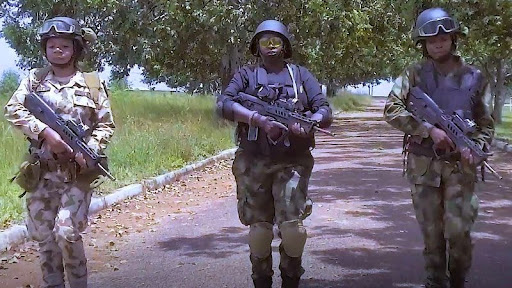Nigeria Bans LGB+, Cross-Dressing, Others in Military

|
Getting your Trinity Audio player ready...
|
The Nigerian military has enacted stringent new regulations banning personnel from engaging in homosexuality, lesbianism, cross-dressing, and other actions they deem “unethical” for members of the armed forces. These directives are part of the revised Harmonised Armed Forces Terms and Conditions of Service (HAFTOCS), which President Bola Ahmed Tinubu approved on Dec. 16, 2024.
A copy of the document, which Nigerian Punch obtained states,
“An officer must not engage in homosexuality, lesbianism, or bestiality. He/she is also prohibited from participating in activities associated with the LGBTQIA2S+ community or cross-dressing.”
The regulations extend to additional bans on body piercing, tattooing, disorderly conduct, drunkenness on or off duty, and amorous relationships with subordinates or their spouses. Service members are further required to meet financial and legal obligations, such as paying vehicle licenses and insurance on time, and failure to comply is categorised as a serious offence.
Other restrictions include a prohibition on joining secret societies, engaging in private businesses, or accepting gifts and favours from junior colleagues. Misuse of government property and any actions that could discredit the armed forces are also strictly forbidden.
The new terms emphasize that military officers must uphold high ethical standards and refrain from behaviour that undermines the integrity of the armed forces. However, the specific disciplinary measures for violating these rules remain undisclosed.
This development reflects an effort by military authorities to reinforce discipline and ethical conduct within the ranks. Critics, however, may question the implications for individual freedoms and the inclusivity of the armed forces under these revised regulations.






